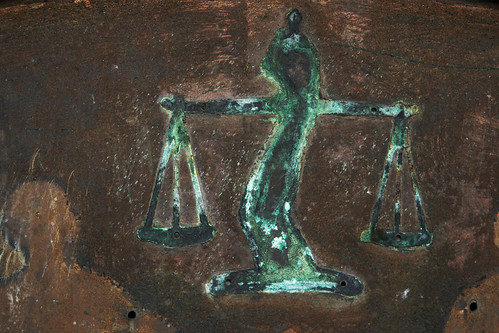
It is widely accepted that transitional justice can and should be separated from politics. How societies and states achieve justice in the wake of mass atrocities, so it goes, is a pursuit that must be divorced from political calculations. Indeed, in the eyes of many, politics is poison to any attempt at achieving accountability and combating impunity. Justice must be above and beyond politics.
As I have written previously, the field of transitional justice suffers from a diversity of problems. It is an ever-growing conceptual minefield that has accepted so much under its mandate that it risks losing its meaning. Increasingly, transitional justice no longer refers strictly to the approaches societies take to account for the past in the wake of conflict, dictatorship or a period of mass atrocity. Instead, a broad array of issues from Security Sector Reform, forced migration, Demobilization and Reintegration Reform, amongst others, are now considered under the transitional justice umbrella.
Another problem within the field and, especially, the practice of transitional justice has been a certain denial of politics. The strength of transitional justice is that it is political and, as such, represents the possibility of building societies and peace on the basis of a good politics.
A couple of weeks ago I was fortunate enough to attend a roundtable discussion at the International Studies Association conference in San Francisco celebrating the latest work of Bronwyn Leebaw, Judging State-Sponsored Violence, Imagining Political Change. The roundtable included two stalwarts in the field of transitional justice, Ruti Teitel and Leslie Vinjamuri (follow them on Twitter here and here). During the conversation, it became clear, at least amongst those theorizing and thinking most deeply about the subject, that transitional justice cannot be separated from politics.
Unfortunately, this hasn’t always been the case. Because transitional justice has been viewed as a process divorced from ‘politics’, the very political nature of transitional justice has remained under-explored and under-theorized. As a result, there has been a failure to distinguish between different types of politics and to identify those forms of politics which can ultimately lead to good outcomes. Consequently, many proponents of transitional justice, especially those who work for advocacy groups or international organizations express a certain phobia of their work being political. This shackles those who want to do transitional justice work to “how-to” guides and “best practices” manuals rather than concerted political action. Unfortunately, this also strips transitional justice of its most important strength: the potential good politics that it represents.
Of course, there are some forms of politics that transitional justice should seek to avoid. International tribunals shouldn’t be beholden to the power politics of particular states or institutions like the UN Security Council. Truth Commissions shouldn’t work at the behest of government interests or parties seeking to legitimize themselves and delegitimize their adversaries; lustration policies shouldn’t amount to witch hunts where a powerful party cleanses the political class of its foes.
Nor can transitional justice be an apolitical box-ticking exercise where states say: ‘we’ve prosecuted some people, we’ve set up a Truth Commission, we’ve barred some people from holding office, and we’ve paid some reparations – we’ve done transitional justice.’
But transitional justice is a particular form and vision of politics. As Kara Apland has written, transitional justice is ”a negotiation between normative and political forces; the infusion of moral (and legal) considerations into what is an inherently political project.” Transitional justice requires political actors to commit to the mechanisms and aims of specific modes of justice and accountability; it requires a particular political vision which views accountability and respect for human rights as central to healthy and just societies; and it requires a place for an open and free contestation of views, beliefs and ideas about what a society emerging from violent political conflict should look like and, above all, what justice means – and for whom.
In short, the politics of transitional justice is exposed with one simple question: transition to what? The answer, it seems to me at least, is to a state where conflict is expressed through non-violent political contestation rather than violence. How to get there is a tricky question. Does it require prosecutions and, if so, where are they best held – in The Hague or locally? Are amnesties to past human rights approaches legitimate and, if so, for whom and for what crimes? What ‘truths’ should Truth Commissions focus on? Again, these are all fundamentally political questions that require political debate and answers.
The answers to what states should do in the wake of mass atrocities won’t be found in the manuals or annual guides of international organizations. Transitional justice is a moving target and consistently requires fresh and creative thinking about what justice is and how it can be both achieved and contribute to the transformation of conflict away from violence.
The promise of transitional justice isn’t that it offers some apolitical blueprint towards achieving respect for human rights, accountability or democracy. Its promise is that it offers good politics; a different politics from that in which conflict is expressed through political violence.
This is a cross-post from Justice in Conflict.
For additional reading on this topic please see:
The ICC: High Expectations, Ambiguous Records
The Relationship Between the ICC and the Security Council
For more information on issues and events that shape our world please visit the ISN’s featured editorial content and Security Watch.

